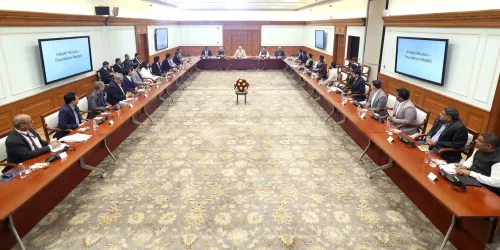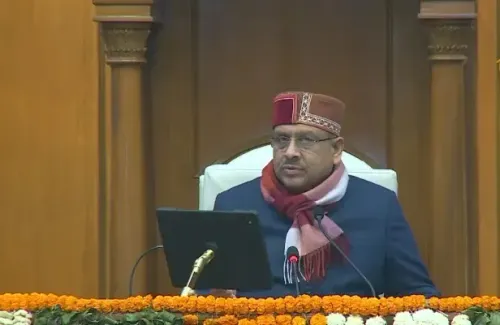CII Advocates for Job Creation Focus in Union Budget 2025-26

New Delhi, Jan 5 (NationPress) The Union Budget 2025-26 must maintain its emphasis on job creation to leverage India’s demographic potential and stimulate economic advancement, according to the apex business organization CII on Sunday.
It pointed out that the Union Budget for FY25 had introduced a range of initiatives aimed at enhancing job opportunities, including the Employment Linked Incentive Scheme. The upcoming Budget may unveil additional strategies to promote job creation, as stated by CII.
With a population of 1.45 billion, India has now become the world’s most populous nation. At a median age of merely 29 years, India is also a youthful nation and is projected to add 133 million individuals to its working-age demographic by 2050. The generation of mass-scale employment is crucial to productively engage this youthful population and to foster inclusive economic growth, CII emphasized.
The business chamber has suggested the establishment of an integrated National Employment Policy, which could encompass various employment-generating initiatives currently being developed by different Ministries.
Moreover, this unified policy could enhance the existing National Career Service (NCS) portal, allowing data integration from multiple Ministries and State Portals. In this regard, it is vital to advance the Universal Labour Information Management System (ULIMS) under NCS. This system would provide insights into job openings, forecasts, classifications, skills demand, and training opportunities aligned with the projections.
As part of its recommendations for the Budget, CII has proposed a new clause to replace section 80JJAA, aimed at encouraging new employment. This new provision should remain available as a Chapter VIA deduction from Gross Total Income, even for those opting for a concessional tax regime. It could be accessible to any taxpayer engaged in business or profession and subject to tax audit. The deduction would apply for the first three years of new employment concerning the salary paid in the respective tax year, capped at Rs 1 lakh per month, according to the statement.
CII has also requested targeted assistance for sectors that are employment-intensive, such as construction, tourism, textiles, and low-skilled manufacturing. To amplify exports from labor-intensive manufacturing sectors, which will result in job creation, there should be synchronization of tariff structures and support through initiatives like the Production/Employment Linked Schemes and the Free Trade Agreements (FTAs) that India is pursuing.
Enhancing women's participation in the workforce, which is currently low, can also significantly benefit the Indian economy. New initiatives, such as building dormitories with CSR funds, formalizing sectors like the care economy, and establishing government-supported creches in industrial hubs, could be introduced to boost female labor force participation, according to CII.
CII suggests that the government could initiate an internship program in rural government offices for college-educated youth. This initiative would create short-term employment opportunities in government offices while bridging the gap between education and professional skills.
Implementing Labour Codes while ensuring social security coverage for Gig and Platform workers would further enhance the employment landscape, according to the statement.
CII has also called on the government to consider establishing an International Mobility Authority under the Ministry of External Affairs. This authority could facilitate government-to-government partnerships to enable Indian youth to seize overseas employment opportunities. It could also collaborate with the Ministry of Skill Development and Entrepreneurship to develop skill enhancement programs aligned with global job opportunities.
CII Director General Chandrajit Banerjee remarked, “In addition to increasing employment, India must also ensure that productivity rises. The country’s Incremental Capital Output Ratio (ICOR) needs to decrease from its current level of 4.1. The Union Budget could establish an expert committee to analyze this issue in greater depth and propose recommendations for the future.”










